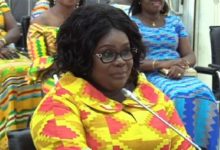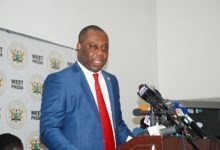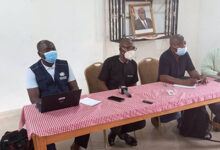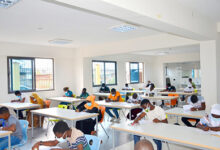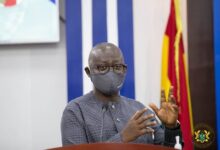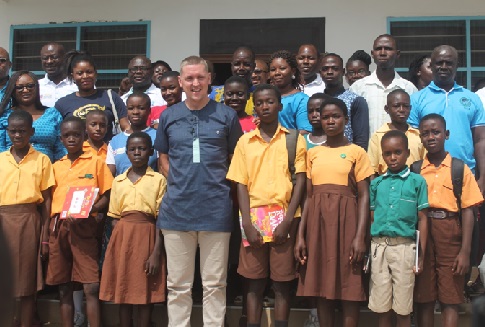
The British High Commissioner to Ghana, Iain Walker, has donated several boxes of reading books to Afrikids-Ghana, a leading non-government organisation for child rights in northern Ghana, to be distributed to some selected basic schools in the Upper East Region to help improve upon reading habits.
Preforming the handing over ceremony at Afrikids-Ghana head office at the Pusu-Namongo community in the Talensi District of the Upper East Region on Friday, the British High Commissioner encouraged the school pupils to take their education seriously.
He told the schoolpupils that education was a powerful tool that could change their fortunes in life and commended Afrikids-Ghana for complementing the Government of Ghana’s efforts in delivering quality education to children, particularly those found in deprived communities and the needy.
Mr Walker explained that he was in the region to commence his cycling tour of the more than 800 kilometres from Paga to Accra, the national capital of Ghana to raise funds for the Korle Bu Burns and Plastics Unit.
According to him, the ride would also afford him the opportunity to “see Ghana from a different perspective and meet people in their own communities.”
Mr Walker said he decided to use part of his schedules to interact with the management of Afrikids-Ghana and school pupils and teachers to have first-hand information about the challenges facing children in the region and to also donate the books to the children.
Briefing the British High Commissioner about the operation of Afrikids–Ghana, the Director of Programmes, Mr David Pwalua, said through funding support from the Department for International Development (DFID) of the United Kingdom, his outfit had been able to change some negative attitudes affecting the welfare of children.
He cited for instance that the NGO in collaboration with other partners had been able to curb the phenomenon of “spirit children” which were so common in some communities in the region, particularly in the Bongo and Serigu areas.
He stated that Afrikids-Ghana in collaboration with the Ghana Education Service, with funding support from DFID also enrolled considerable numbers of children out of school into the formal education sector.
The Director of Programmes indicated that about 8,000 school girls had also been empowered in the area of Sexual Reproductive Health and mentioned the lack of Water and Sanitation Hygiene (WASH) facilities, the phenomenon of kidnapping, and the erratic rainfall patterns in the region which was likely to result in food insecurity as some of the major challenges confronting the region.
He stated that Afrikids-Ghana was in the process of reviewing its strategic plan document to collaborate with other partners to mitigate some of the challenges.
Some of the female school children at the function complained about how difficult it was for them to afford sanitary pads during their menstrual period and appealed to the British High Commissioner to come to their aid.
FROM SAMUEL AKAPULE, PUSU-NAMONGO

